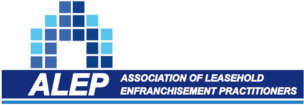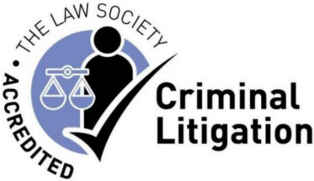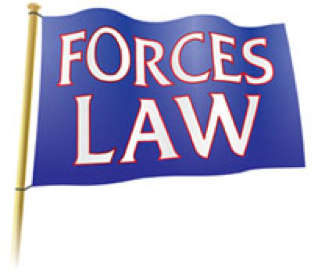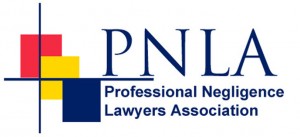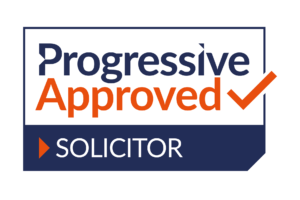Commonhold property: your questions answered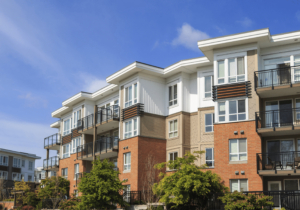
Anyone buying a flat in England or Wales may well come across the term ‘commonhold’. So, what does it mean and what rights do you have as a leaseholder?
In this article we aim to answer your questions and spell out the differences between commonhold and leasehold, while explaining real-world examples.
Looking for genuinely expert advice on lease extension or enfranchisement? Call our specialist solicitors on FREEPHONE 0800 1404544 for FREE initial phone advice – with no strings attached.
Are there many solicitors with experience of commonhold?
Absolutely not. Virtually no solicitors have ever come across this type of property ownership in practice. The fact that there are less than 20 commonholds in the entire country says it all.
But in addition to the huge experience our leasehold team have with lease extension and enfranchisement, we have recently been instructed to carry out some initial investigation into a potential commonhold for a development containing 72 flats.
What is Commonhold?
When you purchase land or a property in England and Wales, there are three classes of ownership available: freehold, leasehold and commonhold.
- A freeholder owns the building and the land it sits upon outright.
- A leaseholder will lease a house OR a flat within a building for a set period of time from the freeholder. And at some stage the leaseholder will need to extend their lease if they are not to lose ownership
- Commonhold is the newest class of property ownership. The term was defined under the Commonhold and Leasehold Reform Act 2002, and relates solely to flats or apartments. Commonhold provides a means for the flat owners/unit holders to own their flats under a form of freehold ownership. However, as the name suggests, it introduces a central Association run by the flat owners/unit holders themselves responsible for block management – maintenance and upkeep of the building and a framework for the management of the common areas and services which they will own collectively.
How Does Commonhold Work?
In essence, it provides an indefinite freehold tenure of a flat or apartment, with shared ownership of and responsibility for any common areas. There is no single overall landlord as such. But there is a freehold owner called a commonhold association.
One important difference between commonhold and leasehold is that the former does not potentially depreciate in value like a leasehold flat as its term drops lower and lower – and flat owners won’t need to pay for a leasehold extension.
Imagine that a new apartment block has just been completed and the property developer signs over the land as commonhold to the apartment owners. Now the land is registered as commonhold, not freehold, with each apartment owner becoming known in law as a unit owner, meaning they possess absolute ownership of their property.
This differs from traditional leasehold flats when leases last up to 999 years, with the ownership returning to the freeholder when the lease expires.
How does the Commonhold Association work?
With commonhold properties, an association needs to be set up to own and manage any shared areas on behalf of all apartment owners. These shared areas can be internal (hallways), external (landscaping) or structural (roofs).
The association is a legally binding entity and needs to have written articles of association (many of which are prescribed by the Commonhold Regulations). The owner of each flat is a member of the association, responsible for maintaining the communal areas of the building under the rules contained in the Commonhold Community Statement.
The association will also need a Commonhold Community Statement (the form of which is also prescribed by the Commonhold Regulations) and which will set out everyone’s rights and obligations, in place of the leases which would have previously done so. This Statement provides a framework and rules for how each flat owners/unit holder can use their property (replacing the covenants in their old leases which will fall away under this process).
Commonhold – the advantages
In general, this sort of property ownership is often viewed as more attractive as property owners gain greater control of their property, as the interests of the members of the association will be broadly the same. And there are plenty of potential upsides to the system when compared with leasehold, including:
- There is no expiring lease, so all the owners in a commonhold building have equal rights.
- A leasehold property is a depreciating asset, with a value that decreases as it becomes shorter, whereas commonhold properties retain their value in the same way as freehold properties do (for advice on value, ask us to put you in touch with a specialist surveyor who can assist you)
- With no overall landlord, all decisions about the building are made jointly by the individual property owners. This removes the potential for the landlord to set high service charges or to fail to properly maintain the building.
- The form of documents is set out in the Regulations so this should help you to get the wording right and keep disputes to a minimum. There is also an Ombudsman service to settle any disputes.
- A commonhold association is run by the owners of the properties, who have the power to manage the property as they see fit. Usually, decisions are made on a majority vote so one owner cannot veto a proposal.
- Commonhold owners can sell or lease their property, subject to legislative restrictions. This differs from leasehold properties where leaseholders may be prevented from being able to sub-let or assign under the lease.
This alternative type of property ownership is viewed as more attractive as property owners gain greater control of their property, as the interests of the members of the association will be broadly the same. This is in contrast to the competing interests of a landlord and a leaseholder.
Commonhold – the downsides
Disadvantages of this form of property ownership include the allocation of responsibility – it is up to the members of the commonhold association to enforce any rules within the commonhold agreement. This could lead to tensions among members.
Then there is the cost, as it can be expensive to convert a property to commonhold as it can get complicated. Also, as commonhold is relatively new, some situations may have to go through the court system to be tested.
For a Commonhold claim to succeed all parties to the lease must agree. In practice many landlords are unwilling to give up their freehold voluntarily and so claims will fail. We can get around this by first assisting you in obtaining the freehold via collective enfranchisement and then converting it to a Commonhold once you own both titles. However, this additional step can be off-putting.
Changes are proposed and although there are no dates yet for when we might see reform to the relevant legislation, the government have made clear their intention to improve this and make it more desirable to leaseholders in the future.
How many commonhold properties are there in England and Wales?
Since the 2002 act became law, only a few commonholds have been registered. As of June 3, 2009, there were 12 commonhold residential developments comprising 97 units (homes) in England and one commonhold residential development comprising 30 units in Wales.
Most commonhold properties are likely to be in new developments built after 2004. After 2004, property developers could decide whether a new development is commonhold or leasehold. This relatively new system of property ownership is still in its formative years, so it is likely that there will not be many commonhold developments until the system has been in place for a while. Developers, in particular, are likely to want to make sure there are no major problems with the new system before embracing it fully.
Can commercial units be commonhold?
Commonhold units are usually residential properties, but this form of ownership can also apply to commercial premises that have offices and shops within a building or block comprising separate properties and with all unit-owners having a joint responsibility for the common parts areas.
What is a commonhold association?
A commonhold association is a company set up to manage a commonhold property, e.g. a block of flats or business centre made up of units with communal areas. The company would be made up of members who each own an individual unit within the commonhold.
The shared freeholders are typically liable for the maintenance and upkeep of all the common areas of the building. The association sets the rate of service charge, can shop around for the best deals on property maintenance and insurance.
Can leaseholders convert?
In theory, leaseholders can convert their ownership status to commonhold, but every leaseholder will have to buy the freehold together, and everyone in the building must agree to convert to commonhold including the freeholder. This is one of the reasons that the process is rare in the real world.
Instead, leaseholders who wish to buy their freehold will usually group together for a process known as Collective Enfranchisement. Under that process a minimum of 50% of the leaseholders must agree to join in with the purchase. When complete, the leaseholders will own freehold collectively (usually in the name of a company), with each dwelling owner having a share in that company. However, the flat or apartment will remain leasehold and can only be bought and sold as leasehold with a share of freehold.
Owners do have more power as shareholders under collective enfranchisement than they do as leaseholders, as they are members of the freehold company which can extend their lease, therefore increasing the property’s market value. They can also live in their own property for life.
Once the collective enfranchisement process is complete, assuming all of the leaseholders want to do so, they could group together to convert to Commonhold, as they will also be the freeholder and so all parties will agree.
The procedure for converting to commonhold is complex and can be very expensive. It is likely to be most suitable for people who live in large blocks of flats where there is also commercial property such as offices.
Occupiers who live in a small block may find it easier and cheaper to simply buy the freehold, but occupiers wishing to convert to commonhold should certainly seek professional legal advice.
Click here to read more about how leasehold enfranchisement could work for you.
Why isn’t it more popular?
The Government has asked the Law Commission to come up with reforms to pursue commonhold as a workable alternative to leasehold for existing and new homes.
Fewer than 20 commonhold developments have been built in England and Wales since it was introduced in 2002 and the system has been criticised for not being flexible enough to cater for larger, more complex developments. As a result, mortgage lenders appear to be reluctant to lend cash against commonhold properties because of the legal issues like the concern that an association potentially becoming insolvent.
There needs to be a broader insolvency approach, placing commonhold associations on a similar footing to local authorities which cannot be wound up without an act of parliament. This could mean that an unpaid creditor cannot wind up the association but can still sue and obtain a charging order over the association’s assets.
What must I check with a commonhold property?
The Leasehold Advisory Service suggests a number of factors that buyers of a commonhold property should check before purchase. These include:
- Is the commonhold association is properly registered?
- Are you happy with all the terms in the commonhold agreement or community statement.
- Has the previous owner sorted out any outstanding arrears, such as payments due towards the commonhold assessment.
Didn’t the Government ban leaseholds?
The Government has been looking into the leasehold system since 2017 and is seeking to give leaseholders in England the power to extend leases by 990 years and end any ground rent payments.
The move is a reaction to the well-publicised ‘leasehold scandal’ which has seen millions of homeowners being stuck with unsellable properties due to rising ground rents, uncapped service charges and barriers to buying freeholds outright.
The Government aims to create an online calculator so leaseholders will be able to see how much they must pay to extend their lease or buy their freehold. This should prevent landlords and freeholders from demanding exaggerated prices. The formula will include a discount for any home improvements carried out by the leaseholder.
The proposals include the establishment of a Commonhold Council made up of leasehold groups and industry representatives. This body will be tasked with making preparations so that there is a wider use of the commonhold system within the property industry.
The first step is a ban on new-build houses being sold under leasehold terms, while freeholders can no longer charge ground rents on new retirement properties.
Unfortunately, these measures only affect new properties meaning there are thousands of homeowners across the country who remain in limbo until further reforms are made.
One of the major sticking points is that there is no financial incentive for property developers to adopt the commonhold model. With a leasehold, a developer receives the sale value of the property and then gets an annual income from the ground rent and maintenance charges. This can be very lucrative over the length of a lease.
Are property developers taking any notice?
In March 2021, it was reported that two of the UK’s biggest house builders were ordered to remove ‘unfair’ leasehold clauses that allowed them to double ground rents every 10 or 15 years. These contracts made it ‘impossible’ for residents to sell their homes or get a mortgage.
The Competition and Markets Authority (CMA) has instructed Countryside and Taylor Wimpey to ban the use of doubling ground rent terms in both existing and future contracts.
Although Countryside and Taylor Wimpey can still charge ground rents, the price must only increase in line with inflation.
Investigations into Barratt Developments and Persimmon Homes are continuing.
Is there a future for commonhold?
The Law Commission has urged the Government to ensure that commonhold becomes the primary model of ownership of flats in England and Wales. And a government press release in January 2021 announced the establishment of a Commonhold Council – which is described as:
“a partnership of leasehold groups, industry and government – that will prepare homeowners and the market for the widespread take-up of commonhold …. giving them greater control over the costs of home ownership”“
This could mean that home ownership in the UK will change radically. However, commonhold has been possible now for almost 20 years and despite government enthusiasm for it, it remains extremely rare. There is no detail in the government’s announcement let alone a timetable. So don’t hold your breath.

